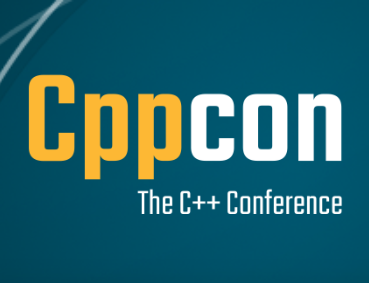CppCon 2019: Floating-Point <charconv>: Making Your Code 10x Faster With C++17's Final Boss--STL
 This year, CppCon 2020 is going virtual. The dates are still the same – September 14-18 – and we are aiming for the CppCon live event to have pretty much everything you’re familiar with at CppCon except moved online: multiple tracks including “back to basics” and a new “embedded” track; live speaker Q&A; live talk time zones friendly to Americas and EMEA (and we’re going to try to arrange around-the-clock recorded repeats in all time zones, where speakers who are available can be available for live Q&A in their repeated talks too, and we’ll do that if it’s possible – but we’re still working on it!); virtual tables where you can interact face-to-face online with other attendees just like at the physical event; virtual exhibitor spaces where you can meet the folks on your favorite product’s teams to ask them question face-to-face; pre- and post-conference classes; and even the CppCon house band playing live before every plenary session. All talk recordings will be freely available as usual on YouTube a month or two after the event, but everything else above will be available only live during CppCon week.
This year, CppCon 2020 is going virtual. The dates are still the same – September 14-18 – and we are aiming for the CppCon live event to have pretty much everything you’re familiar with at CppCon except moved online: multiple tracks including “back to basics” and a new “embedded” track; live speaker Q&A; live talk time zones friendly to Americas and EMEA (and we’re going to try to arrange around-the-clock recorded repeats in all time zones, where speakers who are available can be available for live Q&A in their repeated talks too, and we’ll do that if it’s possible – but we’re still working on it!); virtual tables where you can interact face-to-face online with other attendees just like at the physical event; virtual exhibitor spaces where you can meet the folks on your favorite product’s teams to ask them question face-to-face; pre- and post-conference classes; and even the CppCon house band playing live before every plenary session. All talk recordings will be freely available as usual on YouTube a month or two after the event, but everything else above will be available only live during CppCon week.
To whet your appetite for this year’s conference, here’s another of the top-rated talks from last year. Enjoy – and register today for CppCon 2020 – all the spirit and flavor of CppCon, this year all virtual and online!
Floating-Point <charconv>: Making Your Code 10x Faster With C++17's Final Boss
by Stephan T. Lavavej
Summary of the talk:
Floating-point numbers are ancient, mysterious, and terrifying. Over the past 30 years, the C and C++ Standards have provided many functions for floating-point/string conversions, such as C's strtof(), strtod(), and printf() %a %e %f %g, and C++'s iostreams, stof(), stod(), and to_string(). Despite this history, floating-point is far from a solved problem - these functions have ranged from annoyingly to egregiously slow, and application developers and library maintainers alike have found it exceedingly difficult to understand floating-point behavior.
This session will present new and wondrous developments in the area of floating-point conversions. If your serialization code is bottlenecked by floating-point printing, this will accelerate your code by roughly 3x to 30x (yes, times, not percent). You can also improve the human-readability of your output. Along the way, this session will cover the basics of floating-point representations, dispelling common myths like fuzziness and non-determinism.
Specifically, C++17 added 3 pages of Standardese describing the charconv header and its functions from_chars() and to_chars(). This feature has required an unexpectedly large amount of implementation work, taking over a dev-year for MSVC and becoming the last C++17 library feature to ship. Coincidentally, Ulf Adams at Google developed a novel algorithm named Ryu, which is responsible for the amazing speed of to_chars(). This session will focus on how to use charconv and how to understand its many supported formats, with a brief overview of Ryu's techniques.

 This year, CppCon 2020 is
This year, CppCon 2020 is  This year, CppCon 2020 is
This year, CppCon 2020 is  This year, CppCon 2020 is
This year, CppCon 2020 is  This year, CppCon 2020 is
This year, CppCon 2020 is  This year, CppCon 2020 is
This year, CppCon 2020 is 